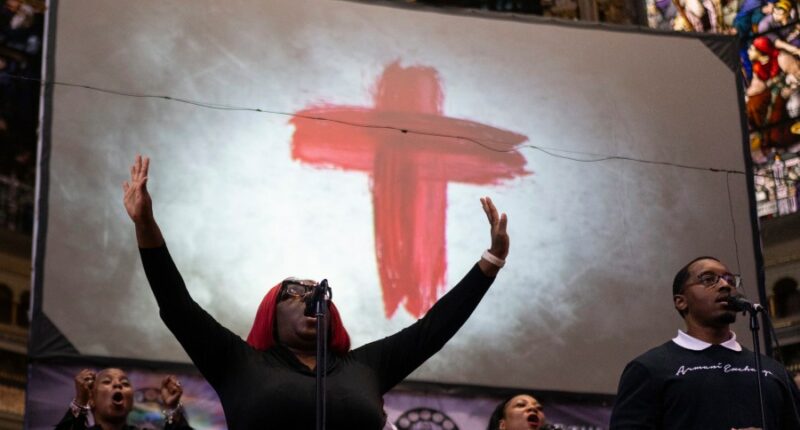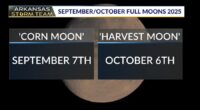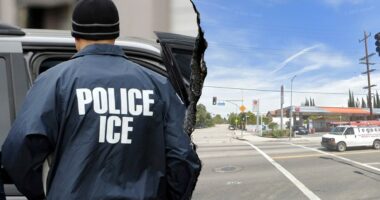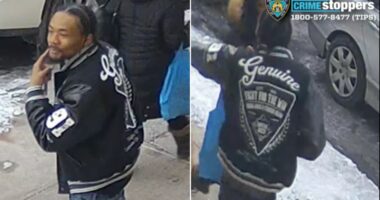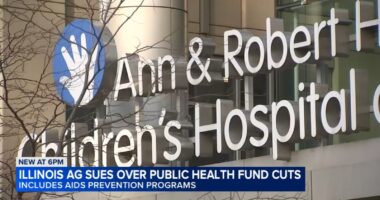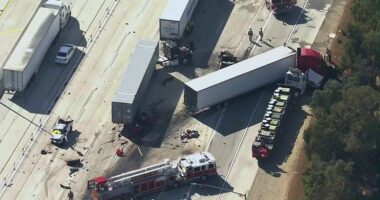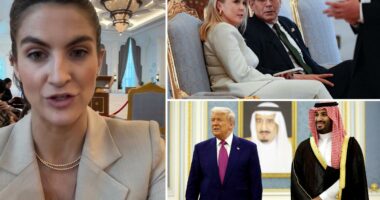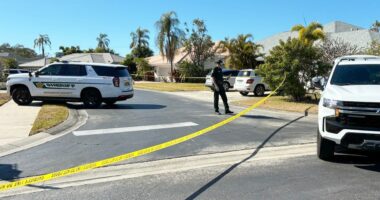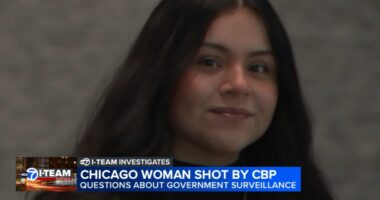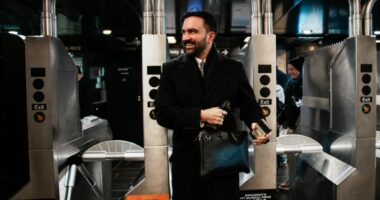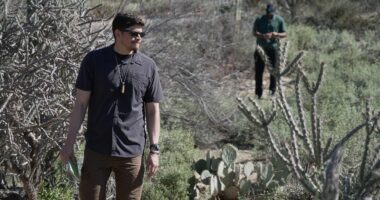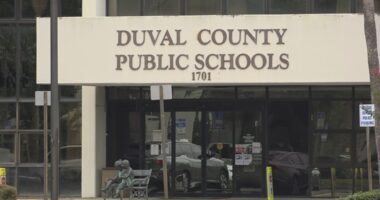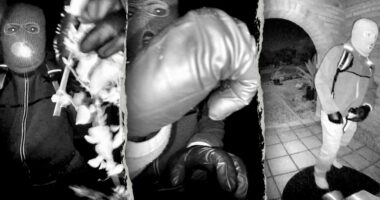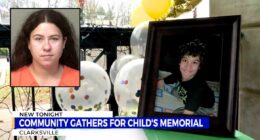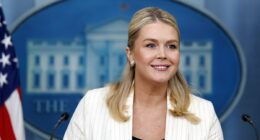Share this @internewscast.com

The Rev. Marshall Hatch, addressing members of a notable Black church on Chicago’s West Side, advised the congregation to keep identification on them, remain in contact with their families, and protest as the city prepared for a potential federal intervention.
During the sermon at New Mount Pilgrim Missionary Baptist Church, Hatch emphasized the importance of letting others know their location to avoid vanishing mysteriously. “We will not lose hope. We refuse to be intimidated. We will not surrender to fascism and authoritarianism,” he declared.
As Chicago braced itself for a crackdown on immigration enforcement and a possible deployment of the National Guard, churches citywide took up the call to speak out from their pulpits. Some aimed to alleviate concerns over detention and deportation, while others addressed the increased possibility of a larger law enforcement presence in the nation’s third-largest city.
President Donald Trump has proposed federal intervention in Democratic areas, recently suggesting that extreme measures might be necessary in Chicago to reduce crime and enhance deportations. Despite staunch opposition from local officials and numerous residents viewing such actions as needless and unwelcome, discussions continue.
Although anxiety levels remain high among immigrants since Trump’s second term began, the proposal of further federal involvement has also heightened tensions, especially within Black and Latino communities where trust in law enforcement is delicate.
Among the church attendees was Lester Burks, a 74-year-old U.S. Army veteran who said a military presence in Chicago would be threatening.
“I don’t want soldiers here,” he said. “They are trained to fight.”
Details about the anticipated intervention remain unclear, lacking specifics on its focus and timing. Trump’s border czar, Tom Homan, announced on CNN’s “State of the Union” that federal law enforcement action is set to commence in Chicago this week. He additionally mentioned the likelihood of increased worksite enforcement operations, similar to the recent large-scale operation at a Hyundai plant in Georgia.
“You can expect action in most sanctuary cities across the country,” he said.
The Trump administration has repeatedly targeted, and unsuccessfully sued, over Chicago’s sanctuary laws, which are among the strongest in the nation. His administration launched a nationwide immigration enforcement operation in the city in January.
There is no official definition for sanctuary policies or sanctuary cities. The terms generally describe limits on local cooperation with Immigration and Customs Enforcement. ICE enforces U.S. immigration laws nationwide but sometimes seeks state and local help.
This time, the Department of Homeland Security plans to use a military base north of the city and has alerted leaders of another suburb that they’ll use a federal immigration processing center there for an operation that’ll potentially last 45 days. Meanwhile, Trump has said he might send National Guard troops to New Orleans before Chicago.
Trump has already deployed the National Guard into Los Angeles and Washington, D.C., where he’s also federalized the police force. A federal judge has ruled the Los Angeles deployment is illegal.
Most of Chicago’s nearly 3 million people are Black or Latino. New Mount Pilgrim is located in the city’s West Garfield Park neighborhood, a largely Black neighborhood which has faced persistent crime and years of disinvestment, including five schools that closed in 2013 as part of the largest mass public closure in U.S. history.
The church has often called for action against street violence even as Chicago’s rates of violent crime have dropped substantially in recent years as part of a national trend. Its large stained glass art installations depict the lives of slaves and memorialize Black people killed by violence. On Sunday, the church celebrated the groundbreaking of a nearby arts and activism center it said was part of the solution.
“We’re not calling for military, we’re calling for resources,” Hatch told congregants. “We know that there is a correlation between resources and violence.”
Elsewhere in the city, other churches worked to remind people of their rights when it comes to interactions with immigration agents, urging them to carry necessary documents.
The feeling of being on edge was familiar to many in Chicago, and the expected operation put a damper on the city’s usually festive Mexican Independence Day celebrations. Church leaders said the January immigration operation in Chicago had a chilling effect on attendance at immigrant-heavy and Latino churches as people stayed home.
Clergy said they were preparing for the same in the weeks ahead.
“It feels like anything can happen at any moment,” said the Rev. Paco Amador of New Life Community Church in the predominantly Mexican Little Village neighborhood. “It would be irresponsible not to talk about this.”
__
Associated Press writer Calvin Woodward contributed to this report from Washington.
